

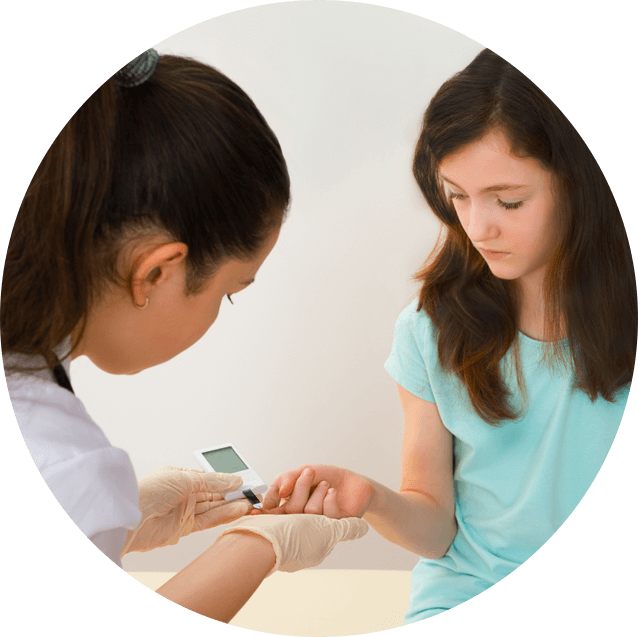
Type 1 diabetes was once called insulin-dependent or juvenile diabetes. It usually develops in children, teens, and young adults, but it can happen at any age.
Reference:

Diabetes and heart disease are interrelated. High blood sugar, over a period of time, may cause damage to blood vessels and the nerves that control the heart. People with diabetes are also vulnerable to develop conditions associated with higher risk for heart disease, such as:
Other factors that can also raise your risk of diabetes and heart disease, includes:
People with diabetes have higher risk of heart failure, a serious condition characterized by decreased ability of heart to pump blood. This insufficient pumping may cause swelling in legs and accumulation of fluid in the lungs, making it hard to breathe. Heart failure may worsen over time, therefore, early diagnosis and treatment is warranted for better prognosis.
Having diabetes or pre-diabetes means increased risk for heart disease, which may include heart failure, coronary heart disease (CHD), and diabetic cardiomyopathy among others.
Diabetes tend to cause heart disease in a person by causing hardening of the coronary arteries (referred to as atherosclerosis), which occurs due to cholesterol build-up in the blood vessels that supply nutrition and oxygen to the heart.
The cholesterol build-up is life-threatening in the view that plaques can break apart or rupture. When this happens, the body tries to repair the rupture by sending platelets to seal it up. But, due to the small size of the artery, the platelets end up blocking the flow of blood, thereby restricting the oxygen delivery and increasing the risk of a heart attack. The same mechanism may take place in the arteries across the body, increasing the chance of a stroke or lack of blood to the feet, hands, or arms.
People with diabetes are also vulnerable to higher risk of heart failure, a serious medical condition in which the heart couldn’t pump enough blood. This, in turn, may lead to fluid build-up in the lungs making it difficult for the patient to breathe. The similar fluid retention in other parts of the body (especially the legs) may also cause swelling.
Diabetes increases heart attack risk as well as the risk of other heart-related conditions. And, unfortunately most of heart-related problems are silent killers as they don’t produce any clear symptoms or warning signs.
In general, those who are 60 or older, have diabetes, high blood pressure, high cholesterol or are overweight should always watch out for the risk of heart diseases. But, it doesn’t mean others can sit back and relax. Be it in any age group, every adult should make sure to get an annual complete body health-checkup done.
Listed here some common heart disease or heart attack symptoms that all should be aware of:
Any treatment program begins with precautions. And, the precautions in this case include eating a healthy diet, getting physically active, avoiding trans-fat and saturated fat completely, staying away from smoking and drinking, and most importantly, staying positive in life.
Talking about the heart disease treatment with diabetes, here are the alternatives your doctor may prescribe:
Aspirin Therapy: Diabetes medications for heart disease that treat both heart damage and lower blood glucose (blood sugar), cholesterol, and blood pressure, and cholesterol. If you are at the risk of heart attack, aspirin would be at your bedside table all the time as it is effective in reducing the risks of clots that can cause heart attacks and strokes. Aspirin helps in blood thinning and prevents the formation of blood clots, which may lead to a heart attack.
Diabetes medications for heart disease: Diabetes disease treatment is considered a priority in people having diabetes and heart disease risk. Recent researches show that newer antihyperglycemic medications (GLP-1 and SGLT-2 medications) are effective in both reducing blood glucose levels and preventing heart-related ailments.
High BP medication: If untreated, high BP may cause damage to blood vessels, the heart and other organs — ultimately leading to death.
Cholesterol medication: It is another essential medicine (statins) that people battling co-morbid diabetes and heart disease may need to keep a tab on cholesterol, in the view of its damaging effect on heart.
Diabetes and heart disease prevention is all about some lifestyle changes and medication (if required). These simple yet effective changes can go a long way to help lower the risk for heart disease or prevent it from worsening, while managing diabetes simultaneously.
Diabetes education provided by a diabetes educator is effective in terms of managing diabetes and lower heart disease at the same time. Further, with effective advice on diabetes and heart disease risk you can better manage your blood glucose and cop with daily challenges of the disease.
Your diabetes educator will also help you mitigate the risks for developing complications and need of emergency hospital visits. For more information, you can always visit Making India Heart Strong website. It will help you with effective advice on diabetes and heart disease prevention and guide you to deal with emergency situation related to diabetes and heart disease.

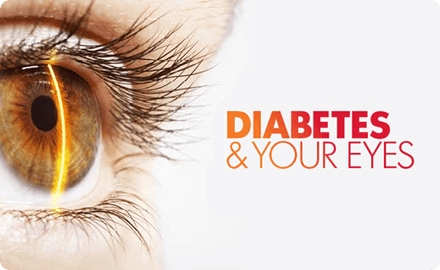
High blood sugar levels lead to a build-up of cells and proteins in the eye’s lens, making it cloudy. Controlling blood glucose levels may help delay the onset of cataracts.
Reference -Boyd K.6 Surprising Facts About Diabetes and Your Eyes. American Academy of Ophthalmology. https://www.aao.org/eye-health/tips-prevention/5-facts-about-diabetes-your-eyes.
Last accessed on 12th May 2022
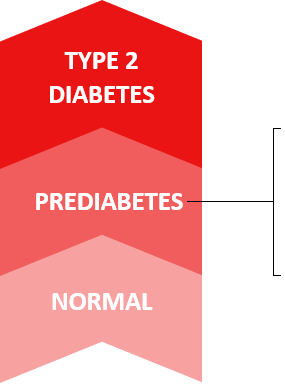
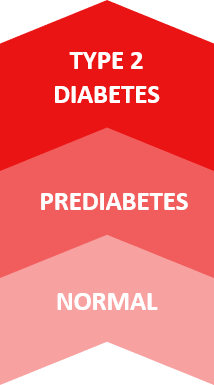
Reference:
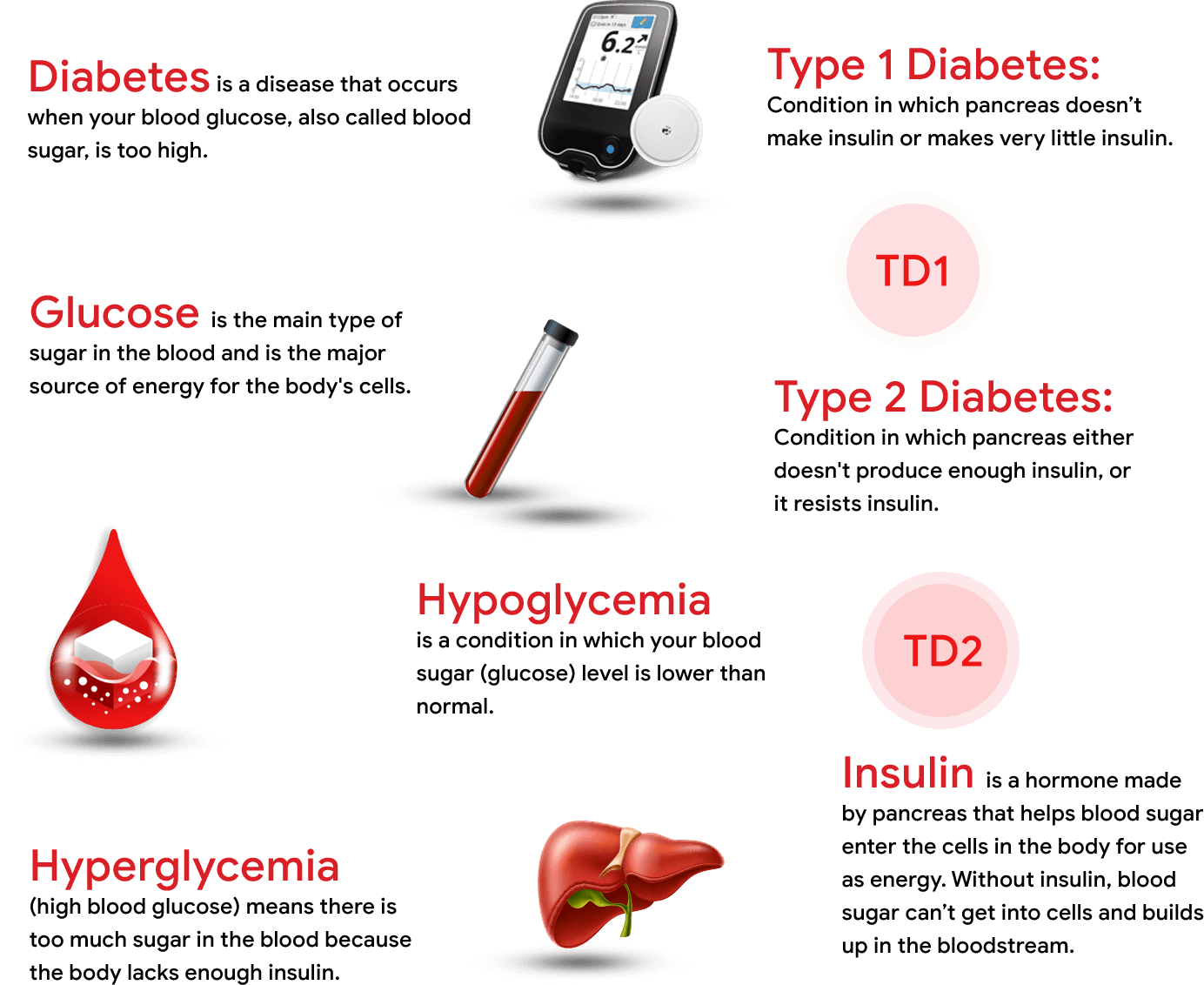

Reference: